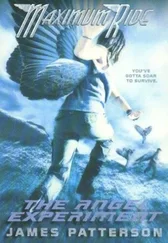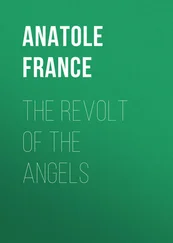Yukio Mishima - The Decay Of The Angel
Здесь есть возможность читать онлайн «Yukio Mishima - The Decay Of The Angel» весь текст электронной книги совершенно бесплатно (целиком полную версию без сокращений). В некоторых случаях можно слушать аудио, скачать через торрент в формате fb2 и присутствует краткое содержание. Год выпуска: 2010, Издательство: CCV Digital, Жанр: Старинная литература, на английском языке. Описание произведения, (предисловие) а так же отзывы посетителей доступны на портале библиотеки ЛибКат.
- Название:The Decay Of The Angel
- Автор:
- Издательство:CCV Digital
- Жанр:
- Год:2010
- ISBN:нет данных
- Рейтинг книги:5 / 5. Голосов: 1
-
Избранное:Добавить в избранное
- Отзывы:
-
Ваша оценка:
- 100
- 1
- 2
- 3
- 4
- 5
The Decay Of The Angel: краткое содержание, описание и аннотация
Предлагаем к чтению аннотацию, описание, краткое содержание или предисловие (зависит от того, что написал сам автор книги «The Decay Of The Angel»). Если вы не нашли необходимую информацию о книге — напишите в комментариях, мы постараемся отыскать её.
The Decay Of The Angel — читать онлайн бесплатно полную книгу (весь текст) целиком
Ниже представлен текст книги, разбитый по страницам. Система сохранения места последней прочитанной страницы, позволяет с удобством читать онлайн бесплатно книгу «The Decay Of The Angel», без необходимости каждый раз заново искать на чём Вы остановились. Поставьте закладку, и сможете в любой момент перейти на страницу, на которой закончили чтение.
Интервал:
Закладка:
“It wasn’t the stomach?”
“The pancreas. If the gastroscope pictures turn out I’ll show them to you.”
The diagnosis had coincided with his own personal one. He asked a week’s reprieve.
He wrote a long letter and had it sent special delivery. It was to inform the Gesshuu Temple that he would be visiting on July twenty-second. Since the letter would arrive on the twentieth, the day after posting, or the twenty-first, he hoped that the Abbess might be persuaded to receive him. He described his career over the past sixty years and apologized for not having awaited an invitation. The matter, he explained, was rather urgent.
On the twenty-first, the morning of his departure, he went out to the cottage.
The housekeeper had pleaded that he take her with him to Nara, but he had said that he must make the journey alone. She gave him elaborate instructions. She packed his suitcase with warm clothes to protect him from air-conditioning. It was almost more than an old man could lift.
She also gave elaborate instructions for his visit to the cottage. It seemed to Honda that she might be apologizing for what she considered oversights on her part.
“I must tell you that Mr. Tōru wears that one white kimono like a bird its feathers. Miss Kinué is terribly fond of it, and when I tried to take it off and wash it she bit my finger, and so there it is still on him. Mr. Tōru is, as you know, a very undemanding person, and it doesn’t seem to bother him at all to wear that one kimono day and night. You must be prepared for it. And then, I don’t know quite how to say it, the maid who takes care of the cottage says Miss Kinué vomits a great deal and has strange eating habits. She seems delighted that she should really be sick. I wonder. Anyway, you must be prepared.”
She probably did not see how Honda’s eyes shone at this oracle telling him his line would be cut off from the eye of reason.
Pushing at his cane, Honda sat down on the veranda. The door was open. He had been able to see into the cottage from the garden.
“Well, Father,” said Kinué. “Good morning.”
“Good morning. I’m off to Kyoto and Nara for a few days and I wanted to ask you to look after the house.”
“A trip? How nice.” Uninterested, she returned to her work.
“What are you doing?”
“Getting ready for the wedding. Do you like it? Not just for me, for Tōru too. People say they’ve never seen a more beautiful couple.”
Tōru, in dark glasses, sat silently between the two.
Honda knew nothing of Tōru’s inner life since he had lost his sight, and he kept his always limited powers of imagination under control. Tōru lived on. But nothing was more capable of conveying heaviness to Honda than this lump of silence no longer a threat.
The cheeks below the dark glasses were paler and the lips redder. Tōru had always sweated heavily. There were beads of sweat at the open neck of the kimono. He sat with legs crossed and left everything to Kinué, but the effort of putting Honda aside was evident in the nervousness with which he scratched his leg and wiped at his chest. There was no strength in the motions. It was as if he were moved by strings from the ceiling.
Though his hearing was apparently keen, he gave no sign that he was taking the outside world in through his ears. No doubt other people, save only Kinué, would have had the same impression, but however confidently the visitor approached, he was for Tōru a discarded scrap of the outside world, a rusty can overgrown by the summer grasses.
Tōru had no contempt, no resistance. He sat in silence.
Though known to be fraudulent, the beautiful eyes and smile had brought him the tentative recognition of the world. Now the smile had left him. There might be some comfort if even regret or sorrow were visible, but he showed emotion to no one except Kinué, and she did not speak of what she saw.
The cicadas had been noisy since morning. Through the branches of the neglected garden, the sky shone like a string of blue beads. The cottage seemed even darker than usual.
The tea garden was reproduced in the circles of dark glasses that would in any case have turned away the outer world. There were no flowering trees now that the crape myrtle was gone from beside the stone basin. The shrubs among stones that did not quite add up to a landscape and the light through the trees were caught in the glasses.
Tōru’s eyes no longer took in the outside world. The scene outside, no longer related to vision and awareness, filled the black lenses in intricate detail. It seemed strange to Honda that all he saw was himself and the little garden behind him. If the sea and the ships Tōru had seen all through the day and their strong funnel marks were an intimate part of his awareness, then behind the glasses and the eyes moving whitely from time to time, the images must be locked in forever. If for Honda and for everyone Tōru’s inner workings had become forever a mystery, then it need not surprise them that sea and ships and funnel marks too were shut up within.
But if they belonged to a world outside of and irrelevant to Tōru, they should be sketched in detail on the lenses. Had Tōru perhaps completely merged the outer world and the inner? A white butterfly flew across the dark glass picture.
Tōru’s heels looked up from the skirt of his kimono. They were white and wrinkled as those of a drowned corpse, and patches of dirt were scattered like bits of foil over them. The kimono had gone quite limp. Sweat drew clusters of yellow clouds at the neckline.
Honda had for some time been aware of a strange odor. He saw that the dirt and oil on the kimono had mixed with the sweat into the smell as of a dank canal that young men put out in the summer. Tōru had lost his fastidiousness.
And there was no smell of flowers. The room was strewn with flowers, but they gave off no odor. There were red and white hollyhocks everywhere, no doubt ordered from a florist, but they were several days old, and dry and wilted.
Kinué’s hair was garlanded with white hollyhocks, not inserted into the hair but leaning this way and that, held unevenly in place by rubber bands. As her head bobbed they sent forth a dry rustling.
She would stand up and sit down again, decorating Tōru’s still rich hair with red hollyhocks. There was a band around his head. She would poke three and four dry red hollyhocks into it and then, like a student of flower arranging, stand back and survey the results. Flowers falling over his ears and cheeks should have been an annoyance, but Tōru had abdicated control of the regions above his neck.
After a time Honda went to dress for the journey.
29
 HAVING LEARNED that the road to Nara was now excellent, Honda took a room in Kyoto. He stayed at the Miyako Hotel and hired a car for noon on the twenty-second. The clouds were out of keeping with the heat. Showers seemed likely up in the hills.
HAVING LEARNED that the road to Nara was now excellent, Honda took a room in Kyoto. He stayed at the Miyako Hotel and hired a car for noon on the twenty-second. The clouds were out of keeping with the heat. Showers seemed likely up in the hills.
So he was here, thought Honda, content. Sensations came as through screens to his weary body and heart, beneath old-fashioned unbleached linen. He had brought a blanket as defense against the air-conditioning. The shrilling of the cicadas in the Keagé district near the hotel sank through the windows.
He made a firm resolution as the car started off. “Today I am not going to see skeletons beneath flesh. They are only a concept. I will see and remember things as they are. It will be my last pleasure, my last effort. My last good look. I must look. I must take in everything, with an unoccupied heart.”
The car passed the Sambōin Temple at Daigo. From the bridge at the Kajuuji Temple it turned onto the National Nara Highway, and from Nara Park the Tenri Highway. In an hour it was at Obitoké.
Читать дальшеИнтервал:
Закладка:
Похожие книги на «The Decay Of The Angel»
Представляем Вашему вниманию похожие книги на «The Decay Of The Angel» списком для выбора. Мы отобрали схожую по названию и смыслу литературу в надежде предоставить читателям больше вариантов отыскать новые, интересные, ещё непрочитанные произведения.
Обсуждение, отзывы о книге «The Decay Of The Angel» и просто собственные мнения читателей. Оставьте ваши комментарии, напишите, что Вы думаете о произведении, его смысле или главных героях. Укажите что конкретно понравилось, а что нет, и почему Вы так считаете.











